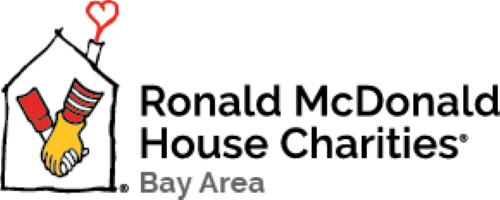06 Nov Giving is good for your health
Support families with sick children and ease your own family’s stress and isolation
If you attended our fall webinar, “Expert Breakdown: Preventing Distance Learning Meltdowns,” you know that RMHC Bay Area’s decades-long expertise in helping families and children manage health crises, such as a child’s life-threatening illness, can offer valuable insights into how you and your own family can establish a new normal during a time that is anything but normal.
As we enter the holiday season, many of us are – for the first time – experiencing the kind of traumatic stress and isolation that our Ronald McDonald House families know all too well. (Yes, COVID-19 is a trauma affecting individuals and families across the world).
Holidays are an especially hard time for families with sick children, who cannot attend school, travel to see families and must adapt favorite holiday traditions in order to stay in or close to the hospital.
This year, we are all doing the holidays differently. And it’s hard.
Antidotes to COVID stress and isolation: Helping others and making a difference
Numerous researchers are reporting that mental health disorders, such as depression and anxiety, are on the rise due to social distancing, quarantine, remote work and school, and more time spent alone or mediated by Zoom calls or social media. Teenagers especially are finding it difficult to cope with the physical disconnection from their peers, schools, and communities.
In some ways this time of year is making COVID-19 challenges even greater. However, the holidays also offer two powerful antidotes to COVID stress and isolation: helping others and making a difference.
A growing body of research points to the physical and emotional health benefits of giving and volunteering, which are shown to reduce stress and depression and promote health social connections and sense of purpose.
Research on the impact of giving on health
Stephen G. Post, founder of the Center for Medical Humanities, Compassionate Care and Bioethics at Stony Brook University and author of Why Good Things Happen to Good People, suggests that helping and giving activities are just as important to maintaining health as avoiding tobacco and obesity.
Post wrote, “The startling findings from our many studies demonstrate that if you engage in helping activities as a teen, you will still be reaping health benefits 60 or 70 years later. Generous behavior is closely associated with reduced risk of illness and mortality and lower rates of depression.”
In a 2006 study, neuroscientist Jorge Moll found that people who give to charities activate regions of the brain associated with pleasure and trust and researchers from Carnegie Mellon University discovered that adults over age 50 who volunteered on a regular basis were less likely to develop high blood pressure than non-volunteers.
Here are a few ways to kick-start your holiday giving at RMHC Bay Area:
-
- Make a donation online to support families like Baby Cece’s and you’ll have made a significant difference in our ability to help house and feed families through the pandemic
- Volunteer to collect and wrap holiday toys and care items for families who are spending their holidays in the hospital by participating in our Comfort & Joy Drive as a family. Better yet, get your who community involved!
- Teach your kids and grandkids why you give to RMHC Bay Area. Here’s some tips from the Greater Good Science Center at Berkeley:
- Be a role model – and explain why you do what you do
- Help them understand the need (here’s our holiday video to share: Cece’s Story: Tiny Warrior Part I)
- Help them see the impact
- Make it part of who they are
- Give them a choice
- Start a Facebook fundraiser for RMHC Bay Area
- Consider adding RMCH Bay Area as a beneficiary in your will or life insurance, which will have an impact on families for generations to come. Learn more at www.rmhcbayarea.org/help/legacy-planning.
- Read up on how to cope with COVID-19, and how giving back might help—here’s a few resources to get your started.
Giving and COVID-19 coping resources
-
-
- Steven G. Post: It’s good to be good: 2011 fifth annual scientific report on health, happiness and helping others. Some of the recurring concepts related to giving and health based on the review of the results of scientific studies include:
- Giving and even just thinking about giving in a spirit of generosity are linked to health and well-being.
- People who think too much about themselves and their own desires – or their own troubles – are not very happy.
- Helping is also a form of self-help when the giver has experienced the same problems as those receiving.
- Volunteerism has positive impacts on happiness, mood, self-esteem, physical and mental health.
- Giving can be a lifelong benefit for those who start young.
- Altruism is associated with a substantial reduction in mortality rates and is linked to longevity.
- Greater Good Science Center at Berkeley: How to help kids learn to love giving
- UCSF COVID-19 Mental Health Resources for Families
- Stanford psychologists investigate COVID-19’s mental toll on teenagers
- Steven G. Post: It’s good to be good: 2011 fifth annual scientific report on health, happiness and helping others. Some of the recurring concepts related to giving and health based on the review of the results of scientific studies include:
-


